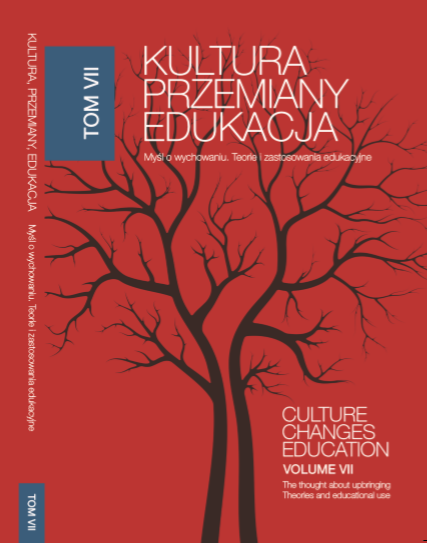Educational role of the shooting movement among school students the averages of autonomous Galicia in the early 20th century and the Second Polish Republic
DOI:
https://doi.org/10.15584/kpe.2019.7.2Keywords:
Galicia, high schools, education, high schools, shooting movement.Abstract
The introduction of the constitution in the Habsburg monarchy in 1867 and the adoption of new laws between 1868–1873 seriously affected the Austrian and Galician education system. In the Polish context, achieving Galicia’s autonomy had created wider opportunities for the development of education. An expression of this was the National School Council established in 1867, which will act as the supreme authority over Polish education. From the beginning of the establishment, the Council expressed interest in the issue of raising young people. It takes place through forms of extra-curricular education. These include court ceremonies, national ceremonies, school attire, scientific circles and interests, libraries, reading rooms, school council, orchestras, trips, helping poor students collect money for national and social purposes Education was also carried out as part of out-of-school activities in cooperation with institutions dealing with educational issues. Outside the school, the upbringing of youth took place during religious ceremonies, scouting activities, dormitories, the „Sokół” Gymnastic Society or the shooting movement. This last form played a special role in the development of national and patriotic values. It significantly contributed to the creation of Legions, and then in the independent reality of the Polish army.
Downloads
References
Artymiak A., Lwowianin Henryk Schmitt. Spiskowiec, powstaniec, bibliotekarz, publicysta, organizator szkolnictwa, Jędrzejów 1939.
Dutkowa R., Polityka szkolna w Galicji 1866–1890 [w:] Galicja i jej dziedzictwo, t. III: Nauka i oświata, Rzeszów 1995.
Kardas J.S., Edukacja obronna w Polsce. Zarys historii i perspektywy rozwoju, Warszawa 1999.
Krajewski K., Bój pod Firlejówką [w:] Księga pamiątkowa 70-lecia państwowego gimnazjum imienia króla Stanisława Leszczyńskiego w Jaśle 1868–1938, Jasło 1938.
Kucharski M., Edukacja obronna, Warszawa 2002.
Majorek C., Projekty reform szkolnictwa ludowego w Galicji u progu autonomii (1860–1873), Wrocław 1980.
Niedojadło A., Wychowanie narodowe i państwowe w szkołach powszechnych Okręgu Szkolnego Krakowskiego w latach 1918–1939, Lublin–Tarnów 2013.
Pawłowiczowa M., Księga Pamiątkowa I-ego Państwowego Gimnazjum w Stanisławowie z 1929 roku jako druk zabytkowy i dokument [w:] W kręgu książki, biblioteki i informacji naukowej, red. K. Heska-Kwaśniewicz, D. Pietruch-Reizes, Katowice 2004.
Schmitt H., Kilka słów bezstronnych w sprawie ruskiej, Lwów 1861.
Sikorski M., Myśl wychowawczo-szkoleniowa Marszałka Józefa Piłsudskiego w latach 1918–1935, Toruń 2005.
Sitnia M., Państwowe szkolnictwo gimnazjalne w Krakowie w okresie galicyjskim, Kraków 2004, s. 185.
Urbanowicz B., Przysposobienie wojskowe w edukacji szkolnej II Rzeczypospolitej, „Prace Naukowe Akademii im. Jana Długosza w Częstochowie. Res Politicae” 2014, t. VI.
Wojtycza J., Studia i materiały z dziejów przysposobienia wojskowego w Polsce w latach 1918–1926, Kraków 2001.
Downloads
Published
How to Cite
Issue
Section
License
Copyright (c) 2019 KULTURA – PRZEMIANY – EDUKACJA

This work is licensed under a Creative Commons Attribution-NoDerivatives 4.0 International License.


